During the latest summits, Russia’s and China’s leaders announced a further rapprochement between the two countries which led to the establishment of all-encompassing relations in the field of strategic interaction. According to the Chinese ambassador, only through accelerating the alignment of the countries’ national development strategies will we be able to attain complementarity and ensure development and prosperity for the both countries. What are the pros and cons of such an impressive initiative?
Panelists:
 Dmitry Evgenievich Sorokin,
Dmitry Evgenievich Sorokin,
Vice-President of the VEO of Russia, Research Director of the Financial University under the Government of the Russian Federation, Corresponding Member of the Russian Academy of Sciences, Professor, Doctor of Economics
 Sergey Gennadyevich Luzyanin,
Sergey Gennadyevich Luzyanin,
Director of the Institute of the Far East of the Russian Academy of Sciences, Doctor of Historical Sciences, Professor
 Sergey Yuryevich Glazyev,
Sergey Yuryevich Glazyev,
Vice-President of the VEO of Russia, Advisor to the President of the Russian Federation, Academician of the Russian Academy of Sciences, Doctor of Economics, Professor
 Chen Zhigang,
Chen Zhigang,
General Director of the Russian-Chinese Business Park
 Sergey Vyacheslavovich Kalashnikov,
Sergey Vyacheslavovich Kalashnikov,
Member of the Presidium of the VEO of Russia, First Deputy Chairman of the Council of Federation Committee on Economic Policy, Doctor of Economics, Professor
 Sergey Aleksandrovich Lukonin,
Sergey Aleksandrovich Lukonin,
Head of the Sector of China’s Economy and Policy, employee of a division of the Center for Asia Pacific Studies of the Primakov IMEMO of the Russian Academy of Sciences, Candidate of Sciences
 Andrei Nikolaevich Spartak,
Andrei Nikolaevich Spartak,
Director of the All-Russian Research Institute of Market Studies, Head of the Department of International Trade and Foreign Trade of the Russian Federation, All-Russian Foreign Trade Academy, Honored Science Worker, Corresponding Member of the Russian Academy of Sciences, Professor, Doctor of Economics
 Sergey Feliksovich Sanakoev,
Sergey Feliksovich Sanakoev,
Chairman of the Board of the Russian-Chinese Center for Trade and Economic Cooperation, President of the Russian-Chinese Analytical Center.
 Yury Vadimovich Tavrovsky,
Yury Vadimovich Tavrovsky,
Head of the Analytical Center “Russian Dream and Chinese Dream” of the Izborsk Club
 Vladimir Remyga,
Vladimir Remyga,
Leading Researcher, Center for Research of International Economic Relations, Financial University under the Government of the Russian Federation, Doctor of Economics, Professor
 Alexander Vladimirovich Buzgalin,
Alexander Vladimirovich Buzgalin,
Vice-President of the VEO of Russia, Member of the Presidium of the International Union of Economists, Director of the Institute of Socioeconomics of the Moscow Finance and Law University, Professor Emeritus of the Lomonosov Moscow State University, Doctor of Economics
 Vasily Bogoyavlensky,
Vasily Bogoyavlensky,
Member of the Board of the VEO of Russia, Deputy Director of the Institute of Oil and Gas Problems of the Russian Academy of Sciences, Corresponding Member of the Russian Academy of Sciences, Doctor of Technical Sciences
 Georgy Kleiner,
Georgy Kleiner,
Member of the Presidium of the VEO of Russia, Deputy Research Director, Head of the Research Field “Mesoeconomics, Microeconomics, Corporate Economics”, CEMI RAS, Corresponding Member of the Russian Academy of Sciences, Doctor of Economics, Professor
 Maxim Aleksandrovich Spassky,
Maxim Aleksandrovich Spassky,
Chairman of the House of Russian-Chinese Friendship
 Tatiana Borisovna Urzhumtseva,
Tatiana Borisovna Urzhumtseva,
Director, Center for Chinese and Asia-Pacific Studies, St. Petersburg State University of Economics, Head of the Russian Secretariat of the Russian-Chinese Economic Universities Association, Member of the World Association of Sinologists
Luzyanin: Dear colleagues, first of all, it’s a great honor to speak before such a prestigious community as part of the Abalkin Readings. Secondly, right off the bat I would like to draw the attention of the distinguished community to the fact that I am not an economist. I will be offering my arguments as a political scientist, and a historian; yet I will express my views on the present and the future of Russian-Chinese relations.
The first point, which is quite obvious. Dmitry Evgenievich has rightly noted that this year’s 70thanniversary of the PRC and of the establishment of diplomatic relations with the PRC has a certain effect on the official, expert-related, cultural, and humanitarian events. The second point, which is also obvious: the current partnership is developing in the face of growing uncertainty in both global and regional security; this uncertainty has led to some kind of formalization of many institutions of global governance and much more. But the main thing that those uncertainty factors have led to is the aggravation of Sino-American trade and customs contradictions, although everyone is well aware that in fact it means a deeper geopolitical confrontation on a large scale. This is a separate important topic, and I will not dwell on it now. It is against this background that our relationship with China as a strategic partner is taking shape.
Today, given the high level of the relationship, an informal, unofficial search for the optimal model is underway. Officially, strategic partnership is understandable, but many media pundits write about an alliance, about further rapprochement, about some kind of formalization. I remind you that over the last 70 years we’ve had two documents which are fundamentally important for our relations: a historical document dated February 14, 1950 — the Treaty of Friendship and Alliance, which for certain reason has sunk into oblivion, and the other one, which is in force now, a document dated July 16, 2001, the Treaty of Friendship and Cooperation, which formalizes the strategic format of relations. Between those dates lies an era of alliance and confrontation and normalization of relations. Today a discussion is ongoing, with some of the participants going as far as calling for an alliance; but it is clear that we should be determining our priorities from Russia’s point of view. Of course, it’s clear that at present no formal alliance is desirable despite the severity of the situation, and the very nature of strategic partnership allows us to fill the agenda even without such an alliance. It is another matter that we, and the Chinese side as well, have agreed to expand the 2001 treaty, in particular Article 9, which provides only for holding consultations in the event of a threat to either of the parties. I think there will certainly be a rapprochement in this area when the treaty will be renewed the next year.
Based on the task, a deepening of the two countries’ military-strategic agenda will come to the fore. You know that the United States identified Russia and China as the main strategic opponents at the end of 2017, and as the main partners at the beginning of 2018. In the near future, apparently, within this month, a Russian-Chinese military agreement will be made to replace the 1993 agreement. I will not talk about it in detail now. What’s new? China today realizes that it is on the verge of a nuclear arms race in Asia. It will not be about missile defense; it will be about the deployment of American ground-based systems – medium and short-range missiles. There will be a new round of the arms race, and therefore, of course, Russian-Chinese cooperation will become more significant.
It’s not for me to explain to this audience what Eurasia, the Eurasian Economic Union and the Chinese “One Belt, One Road” initiative are. There are two major projects: the EAEU, and the Chinese “One Belt, One Road” initiative, which has a marine version, and even a northern one, in addition to the continental one; but of course, in this case we are talking about the Eurasian version of the Chinese initiative. For both Russia and China, it is a matter of strategy, it implies strategic projects. Moreover, I recall that prior to May 8, 2015, prior to the joint statement of the EAEU and the PRC on handshaking, Chinese experts viewed the initiatives of what was then the Eurasian community as competitive, and not comforting enough. But now we have a joint statement, a de facto and de jure political consensus implying the development of both projects in Eurasia. It’s another matter that, of course, for Russia the political agenda is more advanced, we are behind in the economic sphere, in transport, infrastructure, investment projects and so on. It is clear that China’s investment resources, and indeed the sheer size of economy, are much larger, and that China has more opportunities. This is also a separate topic, and I will not dwell on it now. But in any case, it’s a de facto and de jure recognition of equality. There are no preferential agreements with China; the EAEU doesn’t cooperate with China on a preferred basis, but it is understandable as the Chinese have not insisted on it yet.
The next point is Russia’s strategy in relation to the international and regional agendas. I will not explain it in detail. It implies a common approach with China to the Korean peninsula, Afghanistan, the Middle East, Latin America, and much more. It is a separate important area. Here’s where the new quality of the two countries’ influence on regional processes is clearly manifested. As a matter of fact, Russia and China initiated the expansion of the SCO to 8 permanent members, including India and Pakistan, and the same is true for BRICS. By the way, in terms of the international regional agenda the so-called formation of four democracies, i.e. Japan, Australia, India and the USA, the so-called Indo-Pacific region, or the concept of the Indo-Pacific region directed primarily against China, proved to be a serious challenge for Russia, but more so for China. This is a new rather complicated track, in fact a challenge to China’s position in the Asia-Pacific region.
As for Russia’s strategy, tshe most difficult option for us is bilateral Russian-Chinese trade. The picture here is contradictory. I think you might know this question even better than I. On the one hand, from 2017 to 2018 there was a sharp 27% increase to 107 billion, due to higher energy prices and an increase in Russian exports of mineral fuel, raw materials and so on, and agricultural produce as well, with a simultaneous shrinkage of Russia’s engineering exports to China to 1%, and an increase in China’s engineering exports to Russia. Nevertheless, we have a surplus of about 4 billion in this 107 billion trade. Growth will continue, but the structure of this model itself is asymmetric, i.e. mineral fuel and raw materials in exchange for engineering products. This model was developed long ago, in the 90s, it reflects an objective situation, the asymmetry of the economic potentials of Russia and China and the structure of their economies, it did not arise today or yesterday, and it is an objective reality. Another thing is that Russia should pursue an optimal policy in these objective structural conditions of trade. Of course, investments have not been too strong, but, I repeat, it is a separate issue.
Turning to the task of developing a strategy, set by Dmitry Evgenievich, I would like to point out 4 issues to be discussed.
The first is the optimal form of the relationship. It seems to me that Russia’s strategy should proceed from filling up the military-strategic or, more broadly, bilateral, agenda within the framework of that partnership. Some experts call it a quasi-alliance, i.e. an alliance without binding formal documents based on political consensus, as the new ambassador Zhang Hanhui wrote in Rossiyskaya Gazeta. Incidentally, it is important that the existing quality of the partnership, without allied relations, is already a deterring factor for the Americans. In fact, as among Russia, China and the United States, a definite strategy has developed; the Americans today are strongly deterred without the relations between Russia and China being formalized.
The second is the Eurasian strategy of Russia. This is not an easy area. It is clear that Russia is objectively the core of the continent, it has certain opportunities and faces difficult challenges. The “One belt, One Road” strategy also provides opportunities and poses certain challenges. Of course, I believe it may be too early to talk about a free trade zone between the EAEU and China, but the Chinese do not insist on it, as far as I know. Another thing is that the EAEU has been actively diversifying. There are projects for setting up free trade zones in Singapore, Vietnam, Mongolia and so on.
The third very important thing is the internal balance of the Russian-Chinese relations. Of course, it is impossible for us to close the economic gap between Russia and China, it is an objective reality for today and tomorrow. Still, the difference in the countries’ potentials is too great. But the fact of the matter is that what China wants the most is real equality. And what could that be? In my opinion, it could be that in this partnership China is the world’s leading economic power, in terms of its GDP (PPP), and Russia is a great strategic nuclear power. That is, within the framework of the Russian-Chinese tandem there is a combined potential of different quality and different dimensions, which, in my opinion, ensures real equality for the long term. The Chinese are pragmatists, they have everything clearly laid out before them.
And based on this, the fourth, and final, point. We know the millennial mentality of the Middle Kingdom. It is based on pragmatism, rigidity, the realization of one’s own interests in the first place. Russia’s interests are also based primarily on its own interests. But the presence of interests of Russia and China running side-by-side is not a contradiction, it is, in fact, a normal phenomenon which does not create any tension. There is a leitmotif in the Russian-Chinese mutual agenda, which includes key parameters: overall security, both global and regional, mutual right to development and equal cooperation based on the balance.
Sorokin: Thank you very much! Well, colleagues, let’s proceed to brainstorming, as we call it. I give the floor to Academician Sergei Yuryevich Glazyev.
Glazyev: In continuation of what Sergey Gennadyevich said, I will start with equality, which applies to us based on the potential of the powers, with only one remark to the effect that our advantage in this equality is the legacy of the Soviet Union. For 30 years, we have not been very successful in confirming this status, whereas everything China has today is the result of just the last 30 years. Therefore, the question of how long this equality can last based on mutual interests is, I would say, rhetorical.
As for the foreign trade turnover, we boast of great achievements, we report we have fulfilled the presidential directive to attain a 100 billion trade turnover, but it is a very modest achievement. In general, Russia’s share in China’s foreign trade is almost invisible against the backdrop of their huge trade with neighboring countries – the United States and the like. Therefore, the 100 billion is by no means an outstanding result in terms of the equality of our economic opportunities.
What are the bottlenecks? First of all, there is no cooperation behind trade. There are practically no joint ventures, there is no scientific or technological cooperation to create value chains, almost no joint investment projects, and those that do exist, like Yamal LNG, – what kind of projects are they? They are nothing but imported equipment and Russian gas supplies, any they make zero contribution to Russia’s economic growth. In fact, those projects are absolutely invisible to Russia in terms of Russia’s economic growth. All the rent goes either to the Westerners who supply the equipment, or to China, to the extent of its involvement. Although our trade entities complement each other, the main bottleneck is, of course, the degradation of Russia’s economic potential.
The Russian economy has been increasingly lagging behind China. We started at the same time. Russia had greater opportunities at the start. Today we are 5 times smaller than China. In terms of GDP, we are 8 times smaller. But, most importantly, we are 25 times smaller in terms of investment. This explains the difference between our countries in the global economy. Why are we behind in investment? Because we do not have loans. It is obvious that loans to the real sector of economy are 100 times less in Russia today than they were in the Soviet period, and 30 times greater in China. What is there to talk about? The Central Bank has driven us into feudalism, into an archaic system of the absence of loans.
And when we talk today about the reasons for the weakness of our economic partnership, the main reason is our government system, the degradation of our economy, our inability to finance joint investments. There are hundreds of investment projects that have been approved at the political level, and only few of them have been actually implemented. Because, unlike China, which provides its economic agents with an unlimited amount of investment, our banks do not provide it. I think a bank like our Savings Bank simply would not exist in China, since it does not invest at all. In the assets held by our banks the share of investments is less than 5%. And in China, the entire government system is configured to increase investment.
In conclusion, what are my main thoughts?
Obviously, China has created a new government system. It can be called convergent, as we used to call it in the past, i.e. one combining the plan and the market. We called it the integrated world economic mode meaning that the Chinese government system integrated goals set in the interests of the people, frankly speaking, socialist goals: economy for the sake of well-being, when the interests of all business entities are based on the common good. That is, the beneficiaries of the Chinese economic model are, firstly, the entire society as a whole, and secondly, government owned and private businesses which receive unlimited credit and access to material resources in order to be able to increase production; and, finally, the country’s leadership itself, the ruling elite of China, which feels itself today at the top of the world and modestly calls itself “second from the top”.
Until we build a similar government system … I’m not talking about copying, it is probably out of the question, because after decommunization we cannot copy the Chinese model, but I would point out that the system of integrated world economic mode is very diverse. India, which has emerged as the world leader in terms of economic growth, has implemented a similar model within the framework of a democratic political model. India has an altogether different political system, but convergence and integration are still present. The state and the entire government system are focused on maximizing investment.
The conclusion is this: if we continue to adhere to the IMF’s archaic recommendations, if we continue to live without loans, then we are doomed to a peripheral existence between the new center of economic growth, China, in the East and the old European Union in the West, with the our entire economy being destined to serve those two centers. And the second option is to radically change the government systemin an attempt to create a own model of accelerated development, which Putin has called for, to make a breakthrough, but this cannot be done without investments, and investments are impossible without loans. So, we return to what we’ve discussed many times over – to the need for a radical change in the macroeconomic policy, the monetary sphere and so on.
Kalashnikov: In this context, I would add that I am still Vice-President of the Chamber of Commerce and Industry of the Great Silk Road based in Hong Kong.
Colleagues, I have the impression that the number of economic myths regarding Russia and China is simply unprecedented. Those myths stem from many sources. One of them is the various ongoing political processes, both between Russia and China and globally. But the most important thing, in my opinion, is that they downplay the actual economic situation and the prospects of understanding the processes that are going on in Russia and China.
Let’s follow the request of Dmitry Evgenievich and talk about Russia in relation to China. What is China for us, and what are our prospects? I would like to dwell on this briefly.
The question is rather broad: what is Russia in relation to China? If you look speculatively into the future, then it must be one of the most important geopolitical and economic questions that need to be answered. Today we can definitely say that Russia has become a younger brother of China in economic terms. This is the first point. Secondly, what will happen in 20 years? It is a very controversial question. Chinese economic policy is like a Chinese box or, in Russian, a Chinese nesting doll. It has many layers, in terms of both purpose and time.
Let me give you one small example. Everyone heard of the Great Silk Road. Today it is truly a fundamental economic and political nesting doll of China. Let me tell you that few people seem to know how the Great Silk Road works today, particularly how it is financed. We all know about high-level summits where they discuss how good it is, what a great idea it is. But let me remind you that, in fact, the Chamber of Commerce and Industry of the Great Silk Road (and this is the only body that is in charge of this concept, and it isa concept) was founded by the society for promoting Chinese culture, which initially was one of the main founders, later joined by the Chamber of Commerce and Industry of China. Colleagues, I want to draw your attention to the fact that the Great Silk Road as an economic program has a meta-goal (which is probably its main goal) of promoting Chinese culture throughout the globe. Just take notice of this fact.
What is the place of Russia on the Great Silk Road? Almost 70 countries are now on the Great Silk Road, but note that Russia has no place on the Great Silk Road. The railway will pass through Kazakhstan, the Caspian and Turkey. The Trans-Siberian Railway will not be included. I do not want to go into it, but we ourselves are to blame. This is the first point. Secondly, the west-bound highway which is currently supposed to be built through Kazakhstan and Belarus is a purely Russian commercial project, which, in my opinion, will have very questionable consequences, including political ones. The question is: what connects us to the Great Silk Road? The Answer is, Russia simply has no place in it, as I have already said.
Are we China’s rivals? Unfortunately, the most telling example is Africa. Today we are opening up our vast opportunities to African countries. In the near future, a corresponding summit will be held. However, China has already taken almost all of Africa. Keep this in mind.
And another point: does China need us? Yes, China needs us. China needs us primarily as a raw-material appendage. And everything that is now being done in the investment area is an attempt to get to our resources. Moreover, this is true for both mega-investment projects and certain private steps associated with individual entrepreneurship. Yes, today we are a raw-materials appendage of China. Sergey Yurievich has demonstrated it so well. And there are no special prospects. It does not mean, of course, that there are no political prospects.
Our Chinese colleague was right in saying that today the geopolitical situation is pushing both Russia and China into a mutual embrace. There are many nuances here, I do not want to dwell on them, but the essence is that politically we are quite interested in each other today. Let me emphasize: the interest is mutual. The question is whether or not this political interest will be realized economically? On top of that, China does not seem to be showing a lot of interest in our scientific and technological advancements. Today, in terms of advanced technologies, the best we can give to the world is just ideas. Unfortunately, we do not produce real know-how. And China, with equal success in Europe and America, has been buying up all technological advancements, but what it buys from us is just what remains from the Soviet era.
To summarize, I want to emphasize we need to use the current situation in order to set up effective forms of cooperation instead of becoming merely a junior partner of China, a raw-materials appendage.
As regards the Silk Road, I have said that the Silk Road is a nesting doll. One of the goals of the wonderful concept of “Two Belts, One Road” is China proclaiming that a new system of competition between countries is emerging. It’s not that one economy competes with another, but all countries must unite to meet the challenges brought about by the civilizational crossroads. In other words, the problems that arise from scientific and technological progress, from the fourth industrial revolution – they must be addressed by all mankind. And in this regard, China has assumed the role of integrating everybody’s efforts in order to develop a completely new technological and economic reality. Can we fit into this concept? Of course, we can, but we need to work hard to achieve it. Thank you.
Sorokin: Thank you. As I have already announced, Sergey Alexandrovich Lukonin, head of the IMEMO Chinese Economic and Political Sector. We all know this abbreviation. Sergey Alexandrovich, please. Next up is our colleague Spartak.
Lukonin: My greetings, dear comrades, since we are discussing China. When we talk about a strategy for cooperation with China, we first need to understand what kind of a development strategy we have for the Russian economy. We know nothing about it. Therefore, it is useless to make claims to the Chinese side, they themselves do not understand what we want, and therefore cannot offer us any preferences.
Unfortunately, over the years Russia has acquired the status of a supplier of natural resources. Despite the fact that, according to various estimates, our trade turnover has grown to $108 billion, 70% of it is energy. According to various estimates, Russia accounts for less than 1% of Chinese investment, and it’s a downward trend. From the Russian side the quality in Russian-Chinese trade is low. As for China, it’s doing great. Traditionally, the Russian Federation has been in ninth, tenth or eleventh place in trade with China. It has never gotten any higher.
Despite all the rhetoric in the media and among diplomats, the sanctions have affected Russian-Chinese relations. Chinese companies do not want to invest in the Russian Federation, they are afraid of working with us. So far, for Chinese companies, the US and the European Union have been much more important as markets. The United States is a source of both finance and new technology. Unfortunately, Russia does not produce anything that could interest China, but what it does produce it produces in insufficient quantities. We are even unable to meet China’s demand for agricultural products. And the much-advertised statement that the share of Russian agricultural products has increased is not true – in reality it has slightly decreased in 2018, by six hundredths of a percent, but it’s still a decrease. So, the main question is what we want, and how to develop the Russian economy? Only after we have defined a goal can we fully cooperate with China.
There has been practically no advancement within the framework of the “One Belt, One Road” cooperation. Why? Obviously because China’s “One Belt, One Road” program is a program and of expansion and, in many ways, a program of contradictions. We want economic modernization; China wants economic modernization. Modernization of the economy involves the production of highly innovative products. Highly innovative products need to be sold somewhere. So Russia can act as a buyer of Chinese products. Including the 5G story. Here, we are simply offered a choice: do you or do you not want to use the Chinese fifth generation communications standard? And that is the kind of a situation we have to deal with.
Regarding cooperation in politics. Yes, everything is fine in politics, but it seems to me that politics is a reflection of economy and until it clashes with economy everything remains normal, but afterwards a contradiction may arise. But the main contradiction (I’ll simplify a little bit) is when you lend a person 100 rubles, and he doesn’t give it back, you stop talking to him and you say the person is dishonest; but when you give a person a million rubles and he doesn’t return it to you, all pacifist statements and all the talk of not interfering in internal policy can be put aside. Here, there is also a certain danger.
I’m not complaining about China. China follows its own path and it is very successful. I’m complaining about the Russian economy. Until we have defined a development goal (it should not consist in having a surplus balance, it should be related to development), it is useless to complain about China. Thank you very much.
Abalkin Readings, VEO of Russia, September 12, 2019



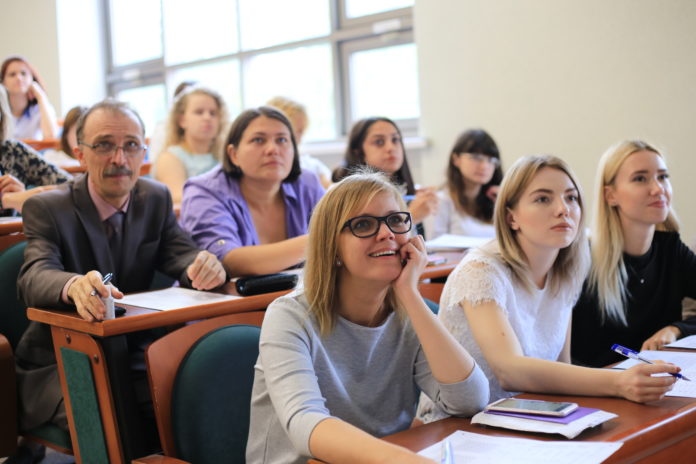
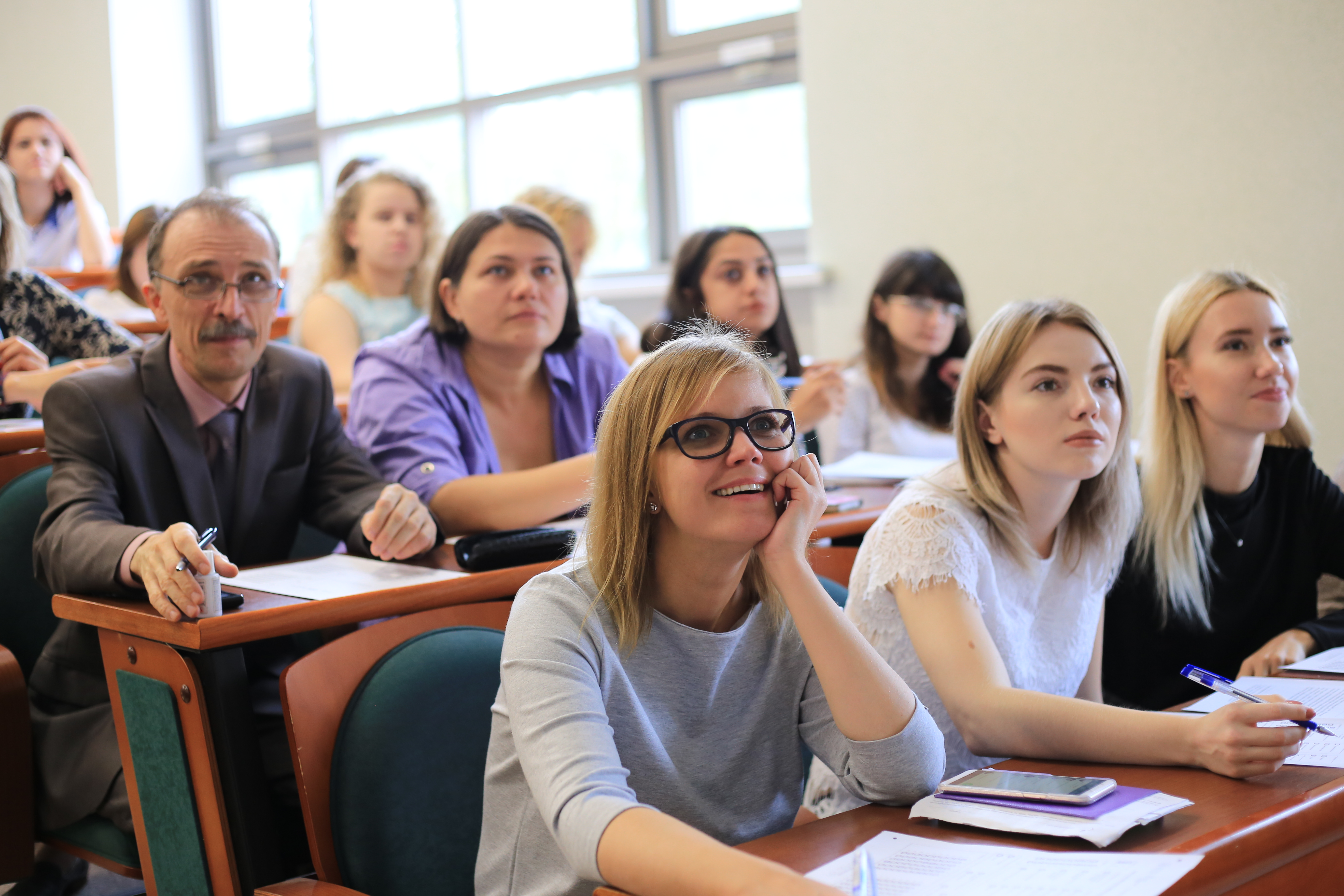 В октябре россияне написали третий Всероссийский экономический диктант, организованный Вольным экономическим обществом России и Международным Союзом экономистов при участии Финансового университета при Правительстве РФ и ведущих вузов России, администраций субъектов Российской Федерации, институтов Российской академии наук. Акция прошла в 85 субъектах РФ на 1516 региональных площадках, а также на 11 зарубежных площадках в Таджикистане, Молдавии, Монголии и Республике Беларусь. В этом году экономическую грамотность проверили почти 110 тысяч человек.
В октябре россияне написали третий Всероссийский экономический диктант, организованный Вольным экономическим обществом России и Международным Союзом экономистов при участии Финансового университета при Правительстве РФ и ведущих вузов России, администраций субъектов Российской Федерации, институтов Российской академии наук. Акция прошла в 85 субъектах РФ на 1516 региональных площадках, а также на 11 зарубежных площадках в Таджикистане, Молдавии, Монголии и Республике Беларусь. В этом году экономическую грамотность проверили почти 110 тысяч человек. 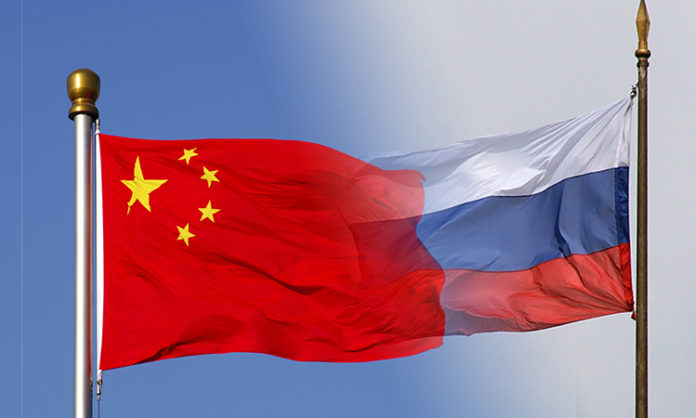
 Dmitry Evgenievich Sorokin,
Dmitry Evgenievich Sorokin,  Sergey Gennadyevich Luzyanin,
Sergey Gennadyevich Luzyanin,  Sergey Yuryevich Glazyev,
Sergey Yuryevich Glazyev,  Chen Zhigang,
Chen Zhigang,  Sergey Vyacheslavovich Kalashnikov,
Sergey Vyacheslavovich Kalashnikov,  Sergey Aleksandrovich Lukonin,
Sergey Aleksandrovich Lukonin,  Andrei Nikolaevich Spartak,
Andrei Nikolaevich Spartak,  Sergey Feliksovich Sanakoev,
Sergey Feliksovich Sanakoev,  Yury Vadimovich Tavrovsky,
Yury Vadimovich Tavrovsky,  Vladimir Remyga,
Vladimir Remyga,  Alexander Vladimirovich Buzgalin,
Alexander Vladimirovich Buzgalin,  Vasily Bogoyavlensky,
Vasily Bogoyavlensky,  Georgy Kleiner,
Georgy Kleiner,  Maxim Aleksandrovich Spassky,
Maxim Aleksandrovich Spassky,  Tatiana Borisovna Urzhumtseva,
Tatiana Borisovna Urzhumtseva,  Дмитрий Сорокин,
Дмитрий Сорокин, 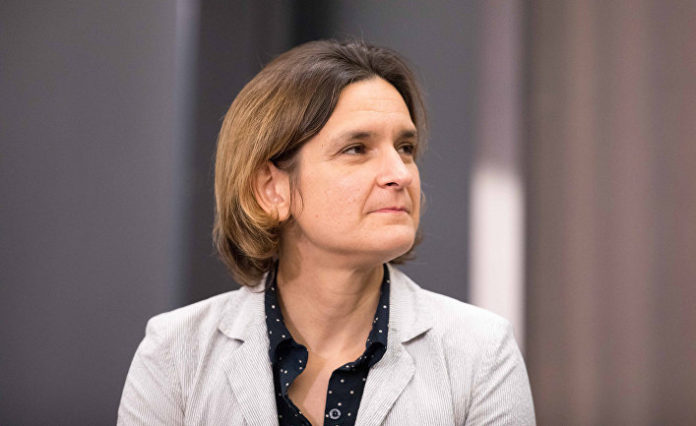
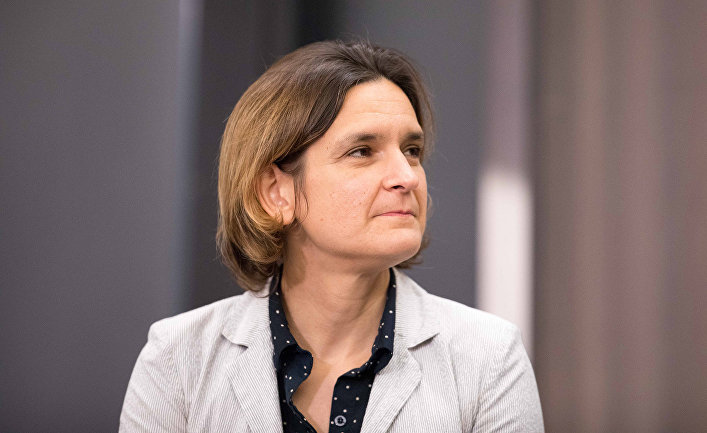 Бедность – явление многогранное. Это не просто нехватка денег, это и нехватка образования, и нехватка здравоохранения, и нехватка информации, а также отсутствие политической инклюзивности, осведомленности и т.д. и т.п.
Бедность – явление многогранное. Это не просто нехватка денег, это и нехватка образования, и нехватка здравоохранения, и нехватка информации, а также отсутствие политической инклюзивности, осведомленности и т.д. и т.п.

 Юрий Горлин,
Юрий Горлин,  Александр Сафонов,
Александр Сафонов, 